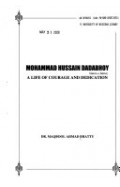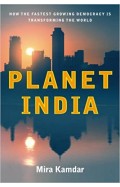A Question of Power: Electricity and the Wealth of Nations
By: Robert Bryce
-
Rs 1,747.50
- Rs 3,495.00
- 50%
You save Rs 1,747.50.
Due to constant currency fluctuation, prices are subject to change with or without notice.
If, in the ancient world, it was guns and germs and steel that determined the fates of people and nations, in modern times it is electricity. No other form of power translates into affluence and influence like it. Though demand for it is growing exponentially, it remains one of the most difficult forms of energy to supply and to do so reliably. Storage is even harder. This paradox has shaped global politics, affected the outcome of wars, and underlies the growing chasm between rich and poor, educated and uneducated. It is changing the game for business, and the requirements of national defence. It is altering the landscape and complicating the task of dealing effectively with climate change.
In this book, Robert Bryce explains the unique nature of electricity as a commodity. He draws on stories from history to illustrate the stunning impact of our quest to harness it, illuminates exactly what is required to successfully sustain it, and explores the impact on societies and individuals when it collapses.
As billions of people around the world still live in darkness, the gap between the electricity haves and have-nots widens, with profound political and ethical consequences. Modern life, even civilisation, has become ever more dependent on a source of energy that must be produced locally and in the moment, in a reliably steady stream at particular wattage, conveyed on wires strung on poles or threaded through pipes. If the lights go out, so does our manner of living, with potentially devastating consequences.
If, in the ancient world, it was guns and germs and steel that determined the fates of people and nations, in modern times it is electricity. No other form of power translates into affluence and influence like it. Though demand for it is growing exponentially, it remains one of the most difficult forms of energy to supply and to do so reliably. Storage is even harder. This paradox has shaped global politics, affected the outcome of wars, and underlies the growing chasm between rich and poor, educated and uneducated. It is changing the game for business, and the requirements of national defence. It is altering the landscape and complicating the task of dealing effectively with climate change.
In this book, Robert Bryce explains the unique nature of electricity as a commodity. He draws on stories from history to illustrate the stunning impact of our quest to harness it, illuminates exactly what is required to successfully sustain it, and explores the impact on societies and individuals when it collapses.
As billions of people around the world still live in darkness, the gap between the electricity haves and have-nots widens, with profound political and ethical consequences. Modern life, even civilisation, has become ever more dependent on a source of energy that must be produced locally and in the moment, in a reliably steady stream at particular wattage, conveyed on wires strung on poles or threaded through pipes. If the lights go out, so does our manner of living, with potentially devastating consequences.
Cronies: Oil, The Bushes, And The Rise Of Texas, America's Superstate
By: Robert Bryce
Rs 680.00 Rs 800.00 Ex Tax :Rs 680.00
A Question of Power: Electricity and the Wealth of Nations
By: Robert Bryce
Rs 1,747.50 Rs 3,495.00 Ex Tax :Rs 1,747.50
Zubin Mehta: A Musical Journey (An Authorized Biography)
By: VOID - Bakhtiar K. Dadabhoy
Rs 892.50 Rs 1,050.00 Ex Tax :Rs 892.50
The Origins of Political Order From Prehuman Times to the French RevolutioN
By: Francis Fukuyama
Rs 4,045.50 Rs 4,495.00 Ex Tax :Rs 4,045.50
Manning Up: How the Rise of Women Has Turned Men into Boys
By: Kay Hymowitz
Rs 845.75 Rs 995.00 Ex Tax :Rs 845.75
The Obama Syndrome: Surrender At Home War Abroad
By: Tariq Ali
Rs 1,100.75 Rs 1,295.00 Ex Tax :Rs 1,100.75
The Quest For Meaning: Developing A Philosophy Of Pluralism
By: Tariq Ramadan
Rs 1,185.75 Rs 1,395.00 Ex Tax :Rs 1,185.75
The Pakistan US Conundrum Jihadists The Military And The People The Struggle For Control
By: Yunas Samad
Rs 1,185.75 Rs 1,395.00 Ex Tax :Rs 1,185.75
An Enemy We Created: The Myth Of The Taliban Al Qaeda Merger In Afghanistan 19702010
By: Alex Strick van Linschoten
Rs 4,197.50 Rs 8,395.00 Ex Tax :Rs 4,197.50
WikiLeaks: Inside Julian Assanges War on Secrecy
By: David Leigh & Luke Harding
Rs 637.50 Rs 850.00 Ex Tax :Rs 637.50
No similar books from this author available at the moment.
Get Set Go: Flashcards - Animals
By: Miles Kelly Publishing
Rs 1,695.75 Rs 1,995.00 Ex Tax :Rs 1,695.75
Mohammad Hussain Dadabhoy, Sitara-e-Imtiaz : a life of courage and dedication
By: Dr Maqbool Ahmad Bhatty
Rs 425.00 Rs 500.00 Ex Tax :Rs 425.00
Bright Line Eating: The Science of Living Happy, Thin, and Free
By: Susan Peirce Thompson Ph.D.
Rs 3,225.75 Rs 3,795.00 Ex Tax :Rs 3,225.75
Planet India: How the Fastest Growing Democracy Is Transforming The World
By: Mira Kamdar
Rs 150.00 Ex Tax :Rs 150.00
Zubin Mehta: A Musical Journey (An Authorized Biography)
By: VOID - Bakhtiar K. Dadabhoy
Rs 892.50 Rs 1,050.00 Ex Tax :Rs 892.50
Cronies: Oil, The Bushes, And The Rise Of Texas, America's Superstate
By: Robert Bryce
Rs 680.00 Rs 800.00 Ex Tax :Rs 680.00
A Question of Power: Electricity and the Wealth of Nations
By: Robert Bryce
Rs 1,747.50 Rs 3,495.00 Ex Tax :Rs 1,747.50












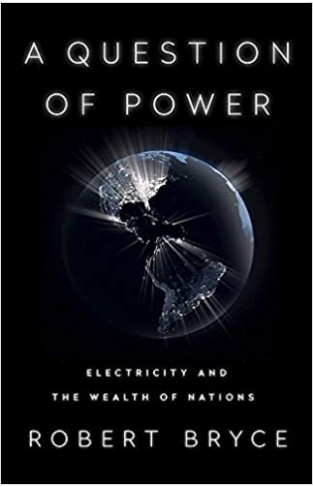
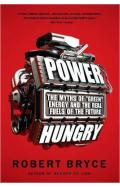

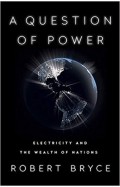
-120x187.jpg?q6)





-120x187.jpg?q6)



-120x187.jpg?q6)






